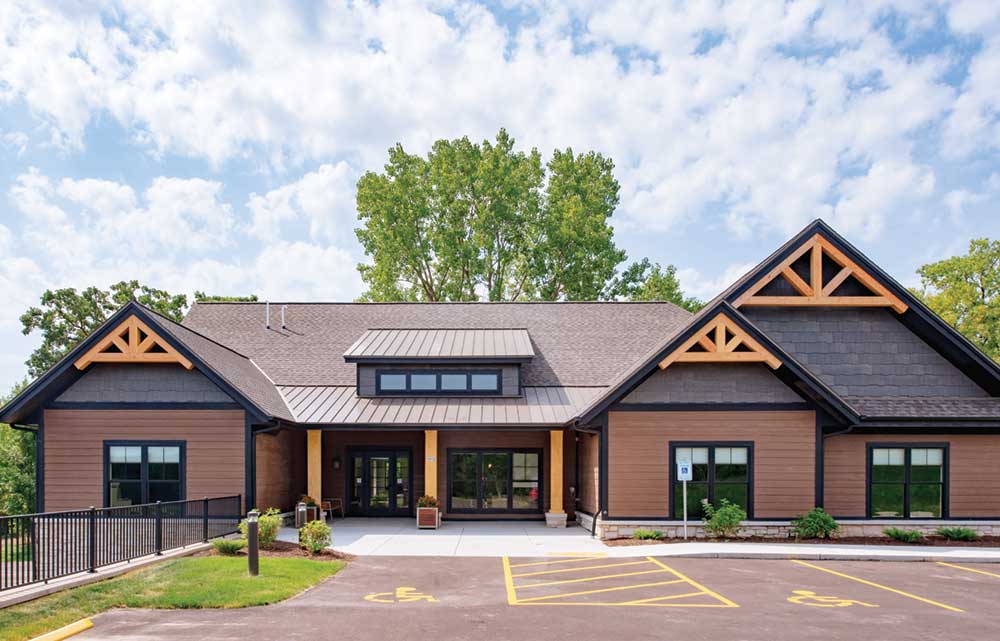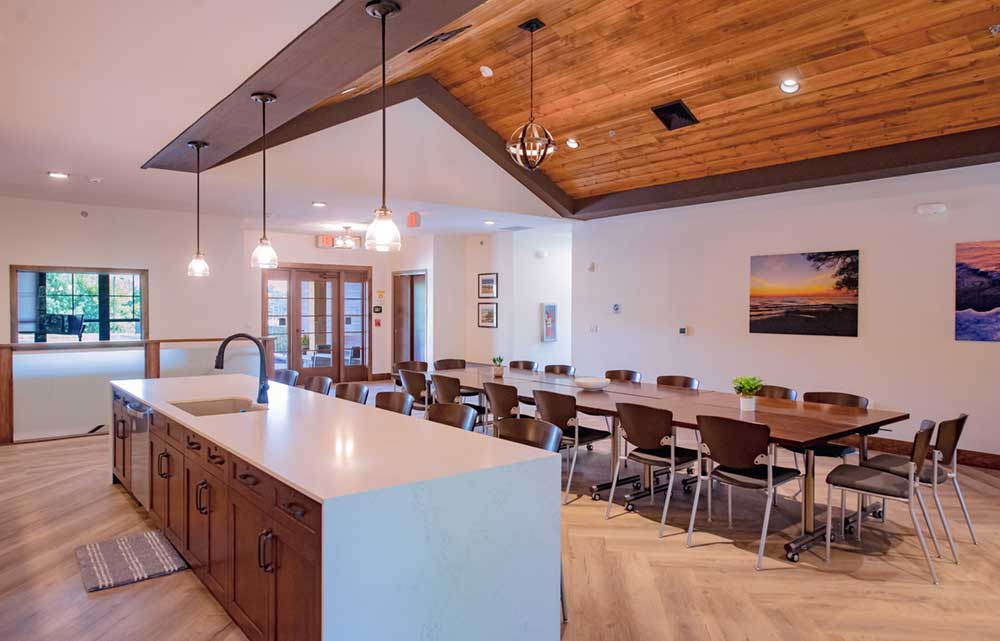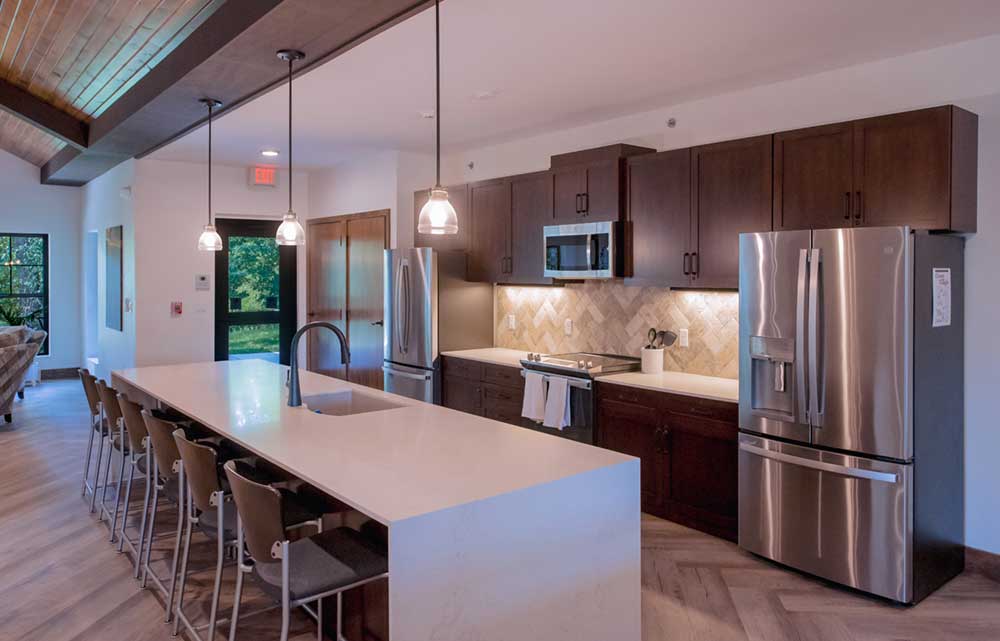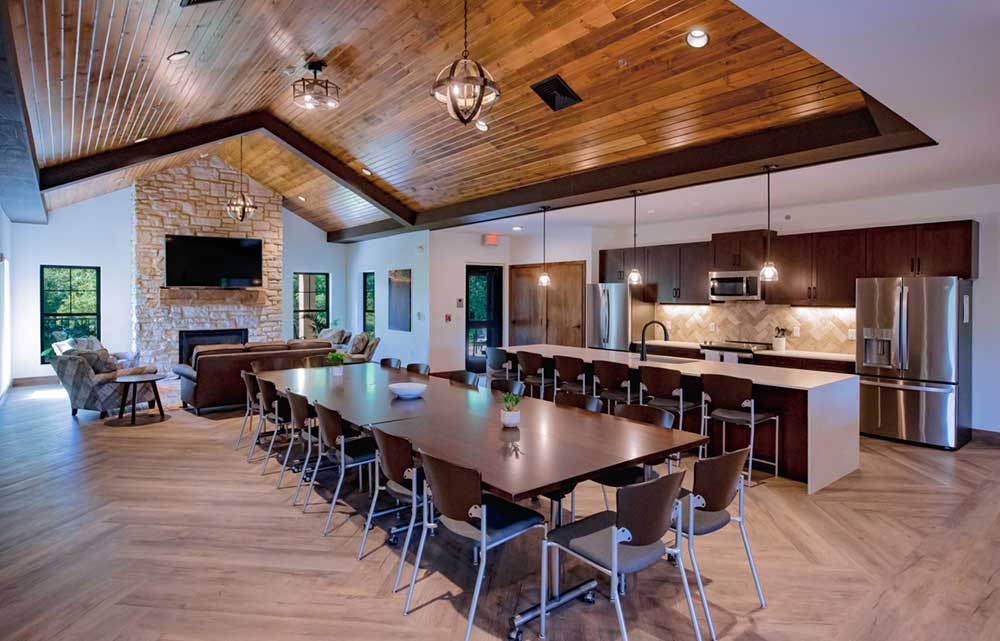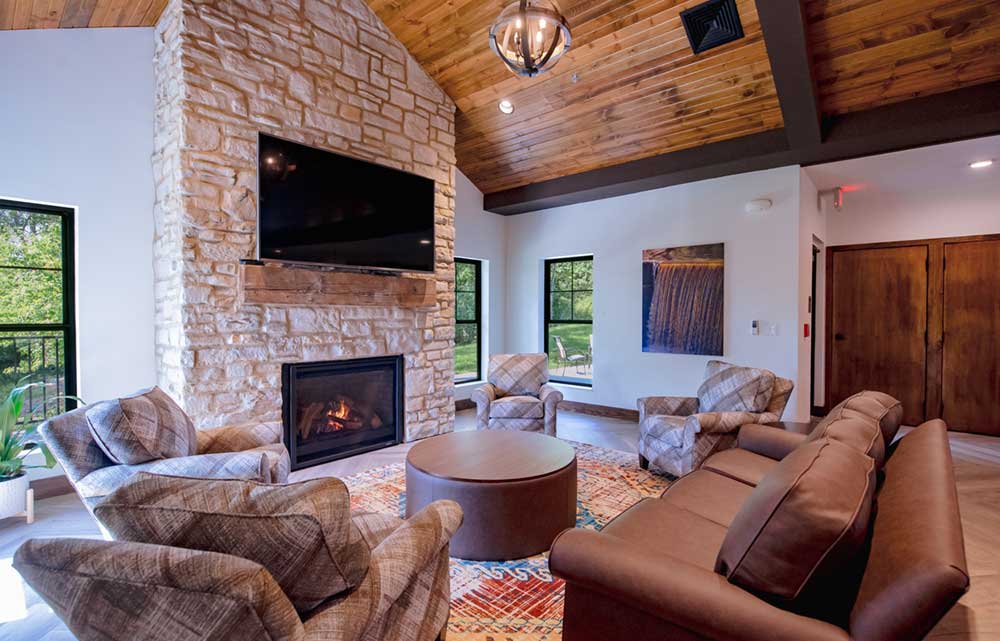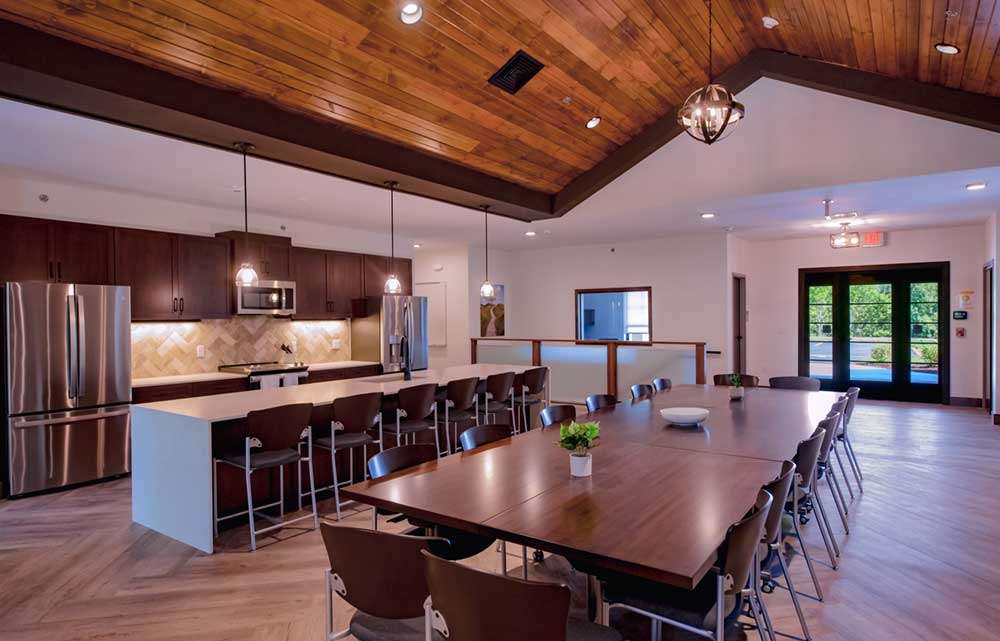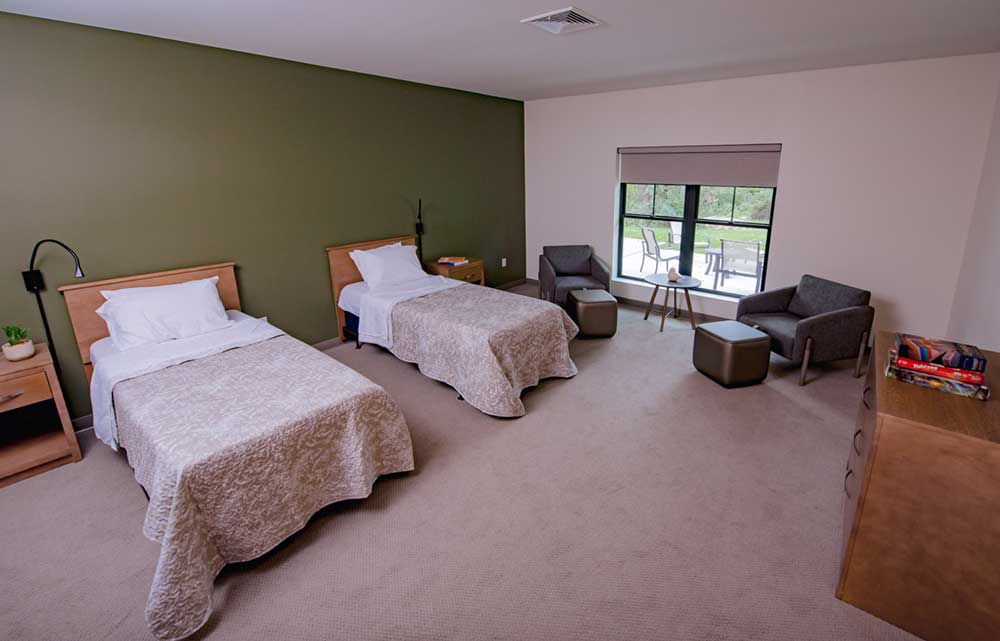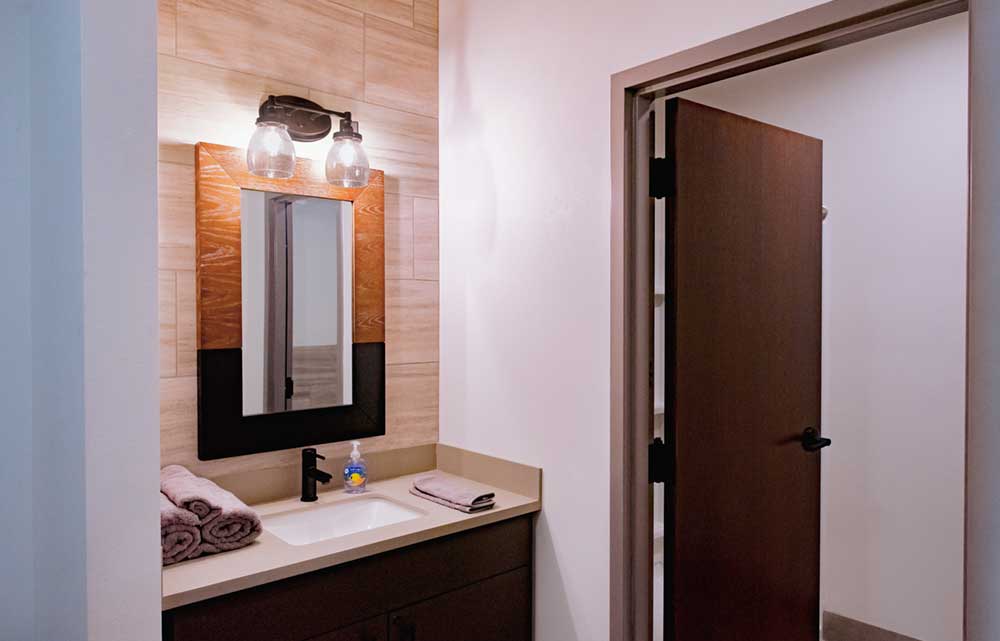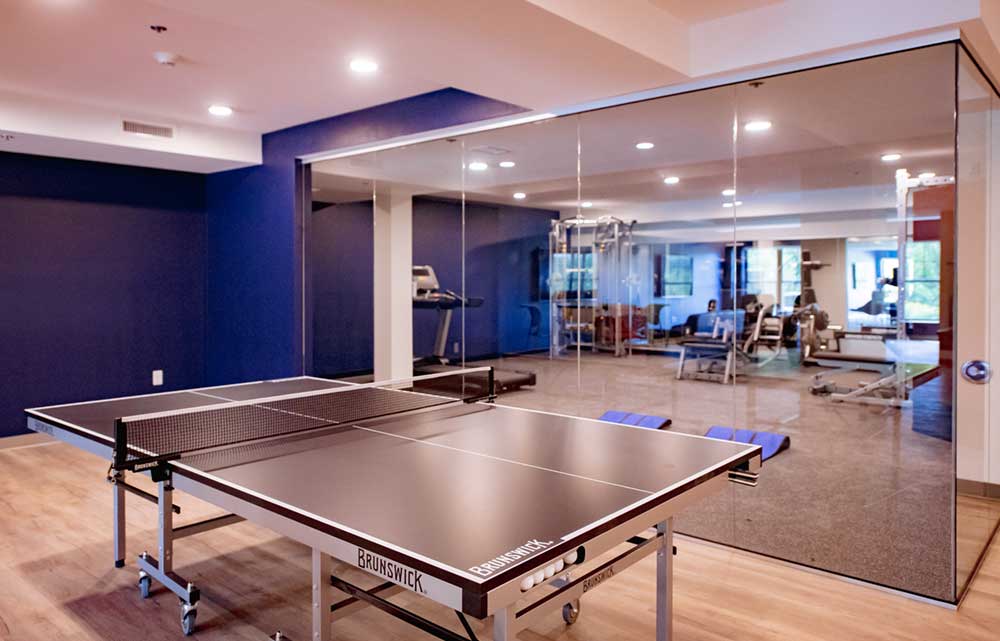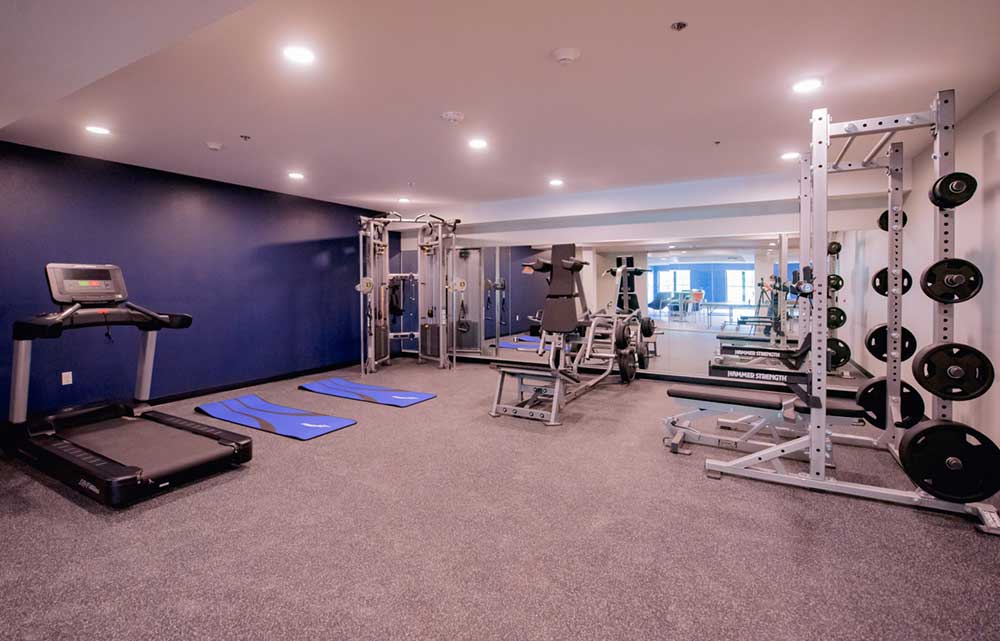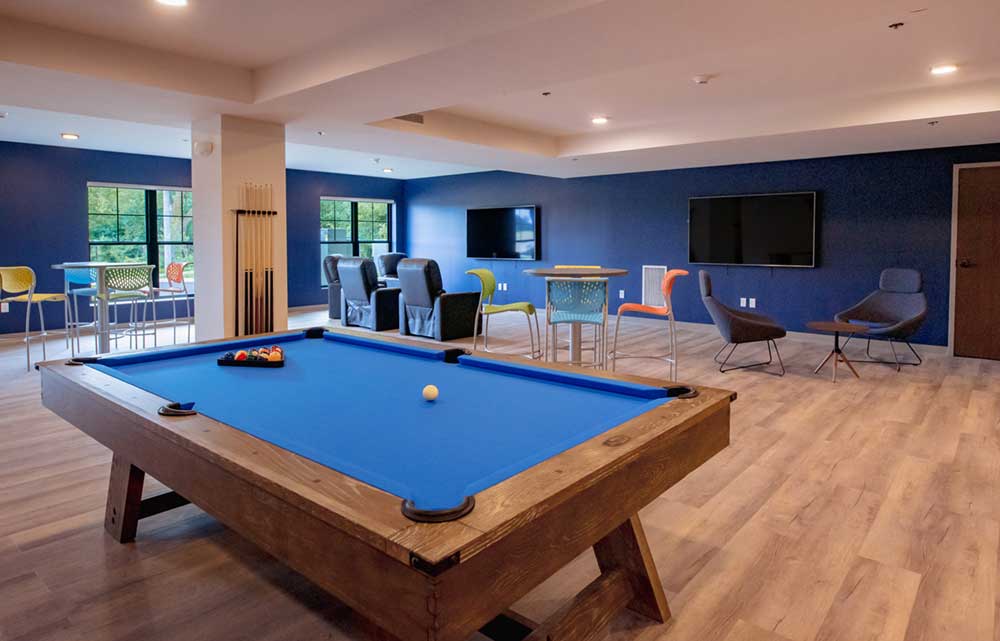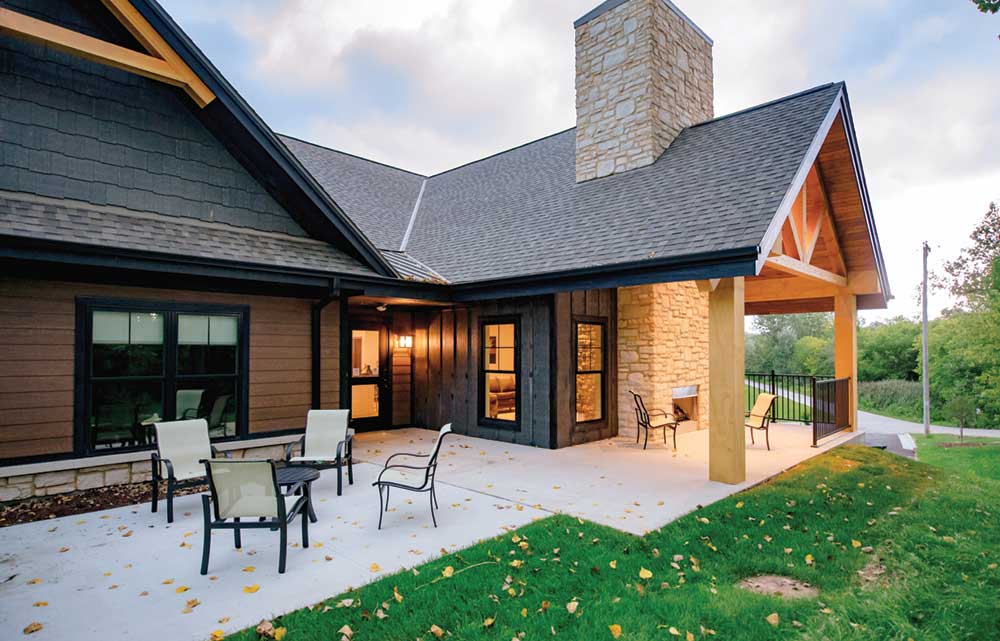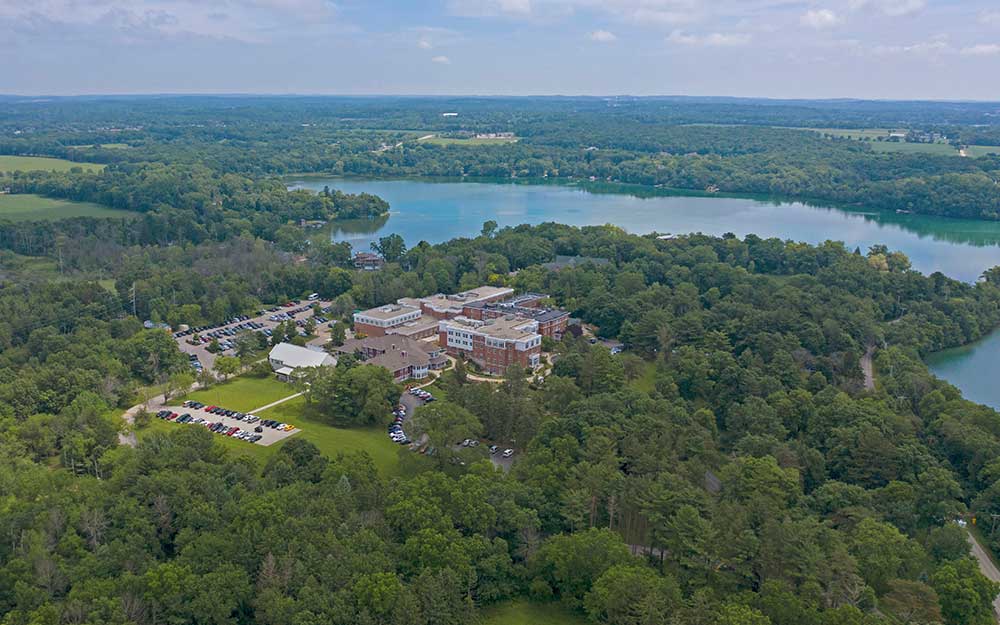
Multiple levels of care
We offer patients multiple options for treatment, including outpatient psychiatric care, partial hospitalization (PHP), intensive outpatient (IOP) care, residential care, and inpatient care to ensure the best outcomes. Our telehealth option for PHP and IOP programming is currently available to residents living in Illinois, Minnesota, Tennessee, and Wisconsin.
Patients can access several levels of care, including:
- Outpatient Psychiatric Care is available to children, adolescents, and adults in Wisconsin virtually and via in-person appointments in West Allis. Patients meet with a Rogers provider for a psychiatric evaluation and a focused discussion about medication options.
- Specialized PHP/IOP treatment throughout the U.S.:
- Partial hospitalization care (PHP) that meet 6.5 to 7 hours a day, five days a week
- Intensive outpatient care (IOP) that meet 3 hours a day, four to five days a week
- Residential care facilities in Wisconsin provide intensive psychiatric and addiction care typically lasting 30 to 90 days.
- Inpatient care in Oconomowoc, West Allis, and Brown Deer, Wisconsin, for stabilization during an acute episode with a length of stay based on the needs of the patient and condition.
- Patients can start with the recommended level of care and move across levels as needed. Our treatment outcomes show that patients do best using the full continuum of care, completing partial hospitalization after inpatient or residential care. Sometimes patients need to move to a more intensive level based on current needs.
- Rogers is in network with most managed care plans for all levels of care. While we accept most plans, we recommend patients contact their insurance carrier for a clear understanding of coverage. Our admissions staff works closely with patients and families throughout the process.
Inpatient is the highest, most intensive level of behavioral healthcare available. This is short-term care available 24 hours a day, seven days a week, to help achieve a stable medical and emotional condition.
Inpatient care may be what is needed in emergency situations for withdrawal from drug or alcohol addiction, to regain nutrients and achieve a healthy intake of food, or perhaps to keep someone safe from personal harm or suicidal thoughts. Led by full-time board-certified psychiatrists, our multidisciplinary team develops a care plan designed specifically for you. Once safely stable, we’ll work with you on a transition to the next appropriate level of care.
Rogers offers separate programs for inpatient treatment for children, teens, and adults at our hospital locations in:
In addition to withdrawal management (detox) for adults, you will find specialized, dedicated programs at Rogers for adults and adolescents suffering from eating disorders.
The length of stay for inpatient care varies; the average is six to seven days for adults, and eight to nine days for children and adolescents. Eating disorder length of stay is two to three weeks.
What is inpatient care like?
All inpatient locations offer a comfortable setting with a semi-private bedroom and homelike community spaces. Our inpatient units are intentionally designed with safety in mind.
In addition to general nursing care and medical management, inpatient care includes varying levels of behavioral and experiential therapy to meet individual needs.
Supervised meals and snacks are included and will be provided by staff. If you prefer a vegetarian diet and your treatment team agrees, our dining services can accommodate. Options for other diets, such as vegan and gluten-free, vary by location.
Areas of the country differ in how they view residential care. At Rogers, it means living on campus during the entire treatment stay and receiving intensive treatment in the same facility. While most patients enter residential treatment directly, patients can also step down to residential care from inpatient care or step up from our specialized outpatient, or day treatment care.
Patients and families from across the country travel to Wisconsin for our residential care for children, teens, and adults. The majority of our residential facilities are part of our Oconomowoc, Wisconsin, campus, nestled in more than 50 acres of wooded and lakeside settings. We also have residential care on our West Allis and Brown Deer campuses located in the Greater Milwaukee Area.
You’ll find residential options for most of the areas we specialize in: alcohol or drug addiction, eating disorders, depression or mood disorders, obsessive-compulsive disorder and anxiety, and trauma recovery (posttraumatic disorder).
What is residential care like?
Residential treatment is a special level of care. Patients develop a strong sense of understanding and community with those experiencing similar challenges. Each facility or treatment space is uniquely designed, but each resident has a semi-private bedroom and enjoys home-like community spaces at all locations.
While in treatment, patients spend a lot of time with others in the program, during free time or therapeutic activities, supervised meals and more. Food is included in the cost of care. With the approval of the treatment team, we can accommodate a vegetarian diet. Accommodation of other diets, such as vegan and gluten-free, varies by location.
Residential care is voluntary. Depending on the treatment the patient is enrolled in, you may temporarily leave campus to participate in therapeutic activities which support your goals. This includes therapeutic passes for family outings in the community. Family involvement is an important part of each treatment plan. Several of our child and adolescent programs offer Family and Friends University to help families and those in a patient's support network understand and gain skills to support their loved one in treatment and recovery.
Individuals in this type of care are healthy and stable enough to return to work, school or home after their regular daytime therapy sessions. At Rogers, this is our lowest level of behavioral health treatment. We offer two levels of specialized outpatient care:
- Partial hospitalization care (PHP). Insurance plans and providers use this term to describe day treatment that is approximately 6 hours of treatment per day, five days per week
- Intensive outpatient care (IOP). This treatment is more intensive than many community-based outpatient programs, and requires fewer hours per day than partial hospitalization care at approximately three hours per day, five days per week
PHP and IOP care are available as virtual options to residents living in IL, MN, TN, and WI. Treatment services available vary by state.
Patients, families, and treatment teams work together to determine length of programs based on individual progress and situations.
At Rogers, outpatient care is available for a wide range of behavioral health conditions, such as:
- Alcohol or drug addiction
- Anxiety disorder or obsessive-compulsive disorder (OCD)
- Co-occurring or multiple conditions
- Trauma (posttraumatic stress disorder) (PTSD)
- Depression or other mood disorder
- Mental health and co-occurring addiction
- Eating disorders
- Anxiety and depression in children and teens with ASD
- Complex medical and mental health conditions
Access to Rogers Connect Care, a virtual treatment option, is currently available to residents of Illinois, Minnesota, Tennessee, and Wisconsin for a variety of PHP and IOP programs. Our admissions coordinators will work with you to determine availability as well as review all available treatment options.
What is outpatient care like?
Through our PHP and IOP care, patients engage in a variety of therapies in both individual and group sessions. These therapies are proven to help reduce symptoms. To help receive a deeper understanding of their treatment, patients may participate in experiential or art therapy.
Family members may be asked to participate in educational sessions or other sessions aimed at building a healthy transition into life after programming.
Rogers requires parent involvement in many PHP and IOP programs for children and teens. Research demonstrates that patients have better outcomes when families participate in treatment. The sessions allow parents to understand the therapy goals and treatment as well as gain skills that are useful in supporting children and teens during and after treatment. Some programs require parents with children under the age of 13 to be present throughout the entire treatment process. In some programs, full parent participation is required during the first two weeks of treatment for children under the age of 18, as well as weekly family therapy sessions and Friends and Family University educational classes once or twice a week.
Rogers’ first-ever supportive living space provides unique support to community
The Sheboygan supportive living space for adults is not only a first for Rogers, but it is unique to the local offering of behavioral health services. While traditional supportive living facilities focus primarily on addiction, Rogers’ environment is a safe place for those recovering from addiction as well as OCD, anxiety, depression, and other mental health disorders.
Commonly asked questions
How many people does the space house?
The facility houses 12 people and has a coordinator on staff 24 hours per day to ensure safety.
What does a typical day look like?
Residents tend to their daytime responsibilities and spend the rest of their time in the supportive living space. For those in Rogers' outpatient treatment, services such as therapy, medication management, physician appointments, and nursing will be provided through the Sheboygan clinic during normal clinic hours Monday through Friday.
What is the benefit of offering the supportive living space to patients?
This continuous access to care allows each person the time to focus on their individual journey while learning self-care, life, and vocational skills that will help them transition into the next phase of recovery from the challenges of mental illness and addiction.
Are patients required to stay on site at all times?
The purpose of the accommodations is to provide a structured, drug and alcohol-free environment. Depending on their personalized treatment goals and safety plan, patients may be able to leave the supportive living house outside of programming hours.
Rogers’ Supportive Living is licensed through the State of Wisconsin and is not part of our accreditation with The Joint Commission.
Through Outpatient Psychiatric Care you will:
- Go through a psychiatric evaluation.
- Discuss your symptoms, how your medication is working, and any side effects that you may be experiencing.
- Explore changing medication dosages, switching medications, or adding something new if necessary.
- Determine your next steps for ongoing medication management and care, which may include additional appointments.
Rising Above OCD: Cody's Story
Cody describes himself as a happy child growing up, but during high school he experienced bullying due to his sexuality and being openly gay. He was ... Read More
Find a program
View our complete listing of treatment options available at every Rogers location.
Our therapeutic approach
We offer an evidence-based approach to care designed specifically for you.
Locations
We have experienced, multidisciplinary teams across the country who are ready to help.

